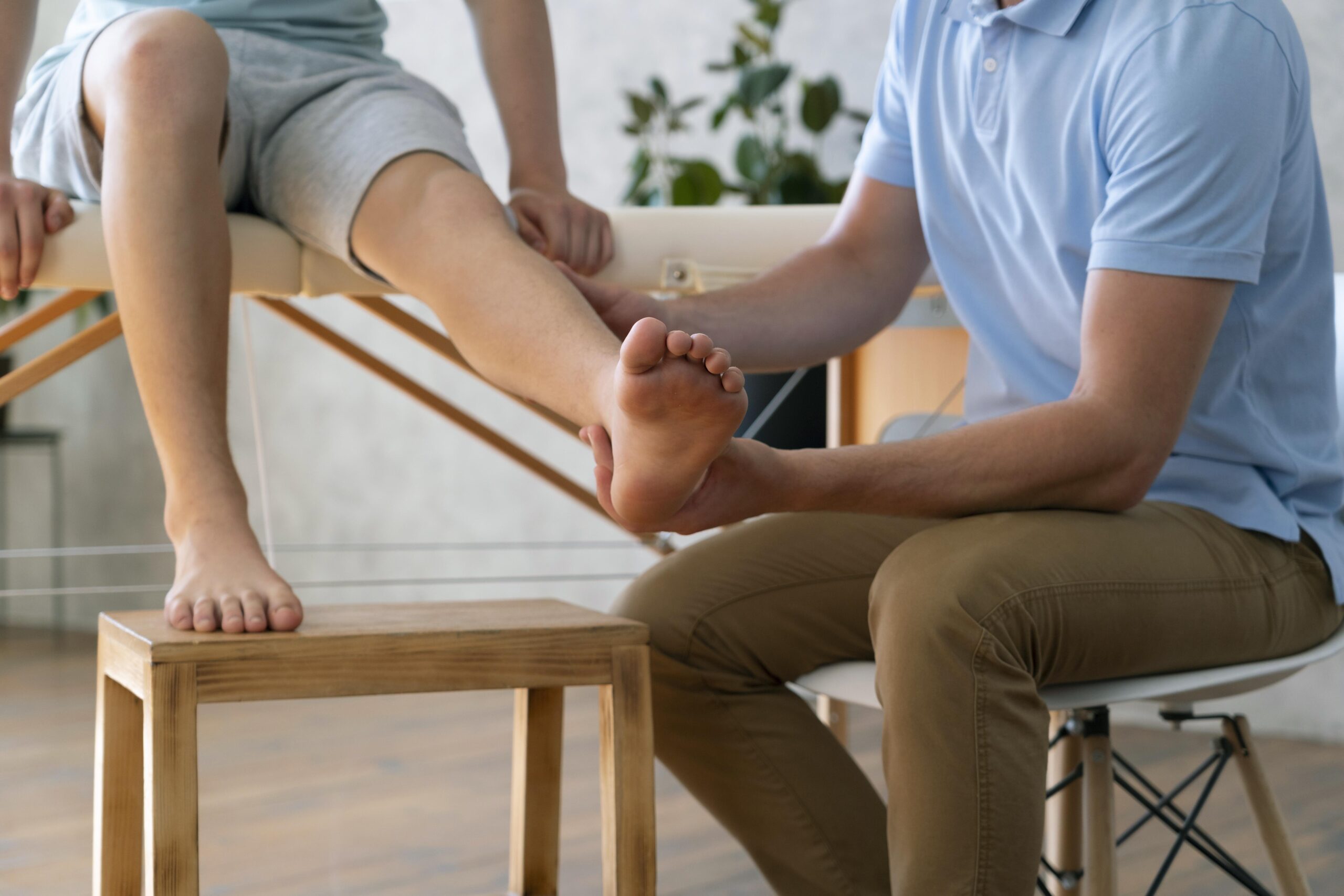
Neuropathy, a condition resulting from nerve damage, often impacts the feet, leading to significant health issues. Individuals with neuropathy may experience symptoms such as numbness, tingling, and pain, which can increase the risk of foot injuries and infections. Proper foot care is crucial for preventing complications and maintaining overall health. This article provides essential tips for managing foot care in the context of neuropathy, ensuring you can take proactive steps to protect your feet and improve your quality of life.
What is Neuropathy?
Neuropathy refers to a range of disorders affecting the peripheral nervous system, which connects the brain and spinal cord to the rest of the body. Common causes include diabetes, infections, and injuries. Neuropathy disrupts normal nerve function, leading to symptoms such as pain, numbness, and weakness in various parts of the body, including the feet.
Impact of Neuropathy on Foot Health
Neuropathy significantly impacts foot health, often causing numbness and tingling. This loss of sensation can make it difficult to feel injuries or changes in the feet, increasing the risk of cuts, blisters, and infections. Additionally, neuropathy can lead to muscle weakness and changes in foot structure, further complicating foot care and increasing the risk of falls and other injuries.
Essential Foot Care Tips for Neuropathy Prevention
Daily Foot Inspection
Regular foot inspections are vital for preventing complications related to neuropathy. Examine your feet daily for any signs of cuts, blisters, redness, or swelling. Use a mirror if needed to check the bottoms of your feet. Promptly addressing any issues can prevent minor problems from becoming serious infections.
Proper Foot Hygiene
Maintaining proper foot hygiene helps prevent infections and other foot problems. Wash your feet daily with mild soap and warm water, ensuring that you dry them thoroughly, especially between the toes. Use a moisturizer to keep your skin hydrated and prevent cracking, but avoid applying lotion between the toes to prevent fungal infections.
Choosing the Right Footwear
Selecting appropriate footwear is crucial for individuals with neuropathy. Opt for shoes that are well-fitting, supportive, and provide adequate cushioning. Avoid high heels, tight shoes, and shoes with seams or rough edges that can irritate. Consider orthotic inserts if recommended by a healthcare professional to provide additional support and comfort.
Foot Exercises and Stretching
Engaging in regular foot exercises and stretching can help improve circulation and strengthen foot muscles. Simple exercises like toe curls, ankle circles, and foot lifts can enhance flexibility and reduce stiffness. Stretching can also help prevent muscle cramps and maintain overall foot health.
Managing Common Foot Problems Associated with Neuropathy
Addressing Numbness and Tingling
Numbness and tingling are common symptoms of neuropathy that can make it challenging to detect injuries. To manage these sensations, avoid walking barefoot and use cushioned insoles to reduce pressure on your feet. If numbness persists or worsens, consult a healthcare provider for appropriate treatment options.
Handling Foot Pain
Foot pain can be managed through various strategies, including over-the-counter pain relievers, topical creams, and warm or cold compresses. Proper footwear and regular foot exercises can also alleviate discomfort. If pain continues or interferes with daily activities, seek advice from a healthcare professional to explore further treatment options.
Preventing Infections
Infections are a significant risk for individuals with neuropathy due to reduced sensation in the feet. To prevent infections, keep your feet clean and dry, and address any wounds or blisters promptly. If you notice signs of infection, such as increased redness, swelling, or discharge, seek medical attention immediately to prevent complications.
Regular Medical Check-Ups and Professional Care
Importance of Regular Foot Exams
Regular foot exams by a podiatrist or healthcare provider are essential for monitoring and managing foot health in individuals with neuropathy. Aim for at least annual check-ups or more frequently if recommended. During these exams, your provider will assess your feet for any issues and guide you on maintaining foot health.
When to Seek Professional Help
If you experience any unusual changes in your feet, such as severe pain, persistent numbness, or signs of infection, seek professional help promptly. Early intervention can prevent more serious complications and ensure you receive the appropriate care and treatment for your condition.
Lifestyle Changes to Support Foot Health
Maintaining a Healthy Diet
A balanced diet supports overall health and can positively impact foot health. For individuals with diabetic neuropathy, managing blood sugar levels through a healthy diet is crucial. Include foods rich in vitamins and minerals, such as fruits, vegetables, and whole grains, to support nerve health and overall well-being.
Staying Active
Regular physical activity improves circulation and supports overall foot health. Choose low-impact exercises that are gentle on the feet, such as swimming or cycling. Consult with a healthcare provider to develop a safe and effective exercise routine tailored to your needs and abilities.
Conclusion
Effective foot care is essential for preventing complications related to neuropathy and maintaining overall health. By following the tips outlined in this article, including daily foot inspections, proper hygiene, choosing the right footwear, and managing common foot problems, you can significantly reduce the risk of foot issues. Regular medical check-ups and adopting a healthy lifestyle further support foot health and overall well-being.
Visit RestoreWC today to learn more about how we can help you take control of your foot health and improve your quality of life. Schedule a consultation or contact us for more information—your feet will thank you!